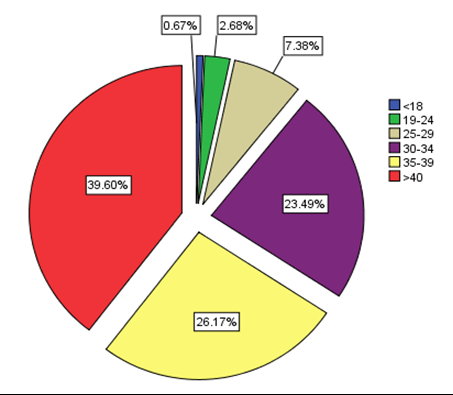The Effect of an Educational Intervention on the Standard Precautions among Nurses in Kenya by Vincent K Mukthar in BJSTR
Abstract
Background: There is general knowledge deficiency on the Standard Precautions that contribute to risky behaviours amongst nurse and
that compliance with the Standard Precautions is still not a common practice.
Objective: To analyze the effectiveness of Social Cognitive Theory-based educational Intervention to Registered Nurses in influencing the
knowledge and compliance with the Standard Precautions in Selected County Referral Hospitals in Kenya.
Methodology: This was a prospective Quasi Experimental study.
The respondents were registered nurses in the selected hospitals. The
instruments were self-administered Questionnaires and Observational
schedule. Data were analyzed using Statistical Package for Social
Sciences version 20. The study has employed both descriptive and
inferential statistics to analyze the data. Results have been presented
in text,
tables and graphically.
Findings: The knowledge on the Standard Precautions
increased from 57.7% to 66.2% after the educational intervention. The
selfreported
compliance on the Standard Precautions improved from 46.3% to 73.8%
after the educational intervention. The observed compliance
on the Standard Precautions was 62.7%. The observed compliance scores on
the Standard Precautions increased from 61.3% to 67.6% after
the educational intervention.
Conclusion: It is the submissions of this study that both
self-efficacy and collective efficacy of healthcare workers on the
standard
Precautions is a function of vicarious learning, conducive environment,
motivation and robust cognitive understanding. Educational
interventions should be rooted in the Social Cognitive Theory,
Thorndike’s Principles of Learning and principles of androgogy for
greater
impacts and desirable outcomes on nurses.



No comments:
Post a Comment
Note: Only a member of this blog may post a comment.